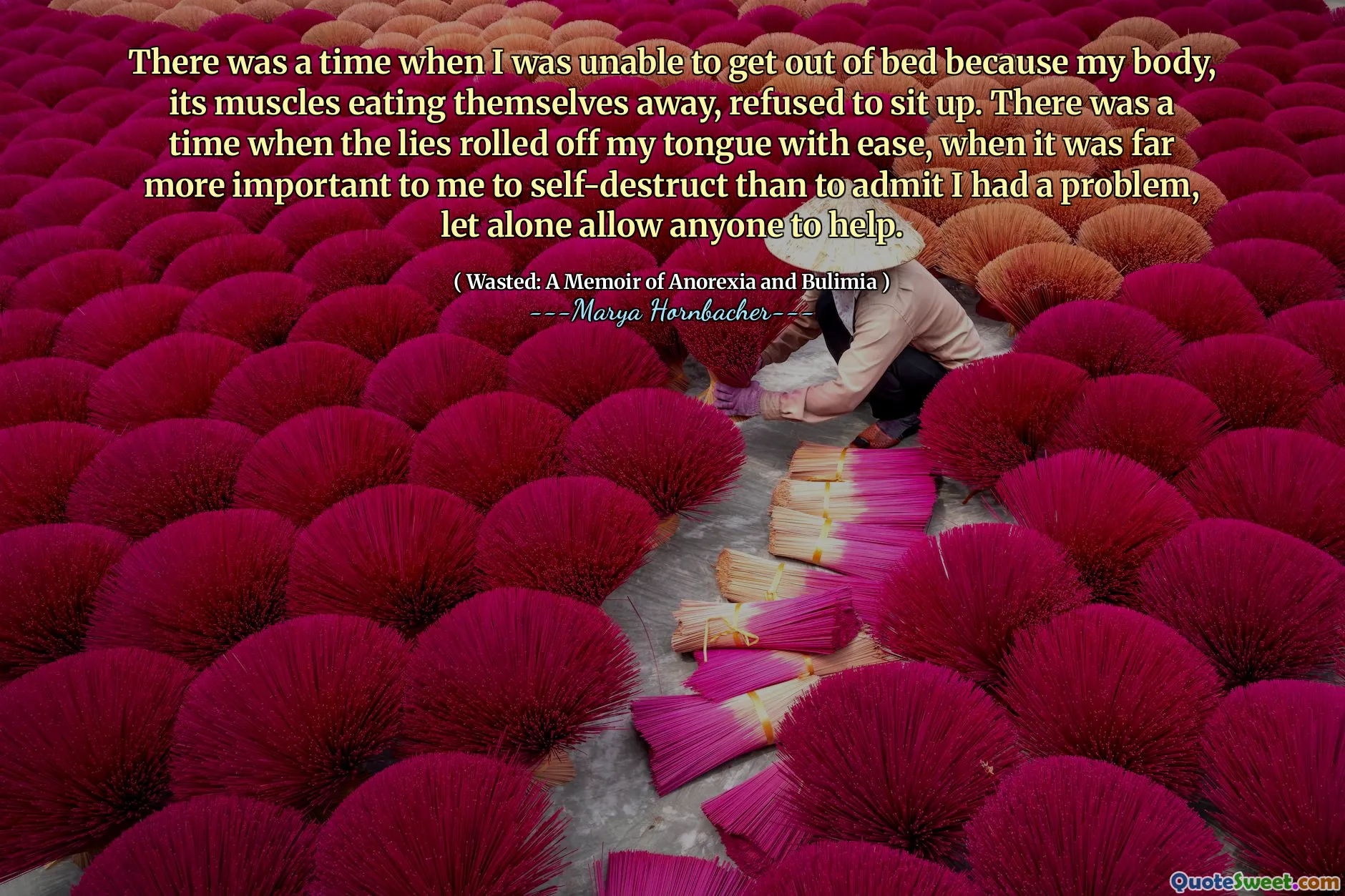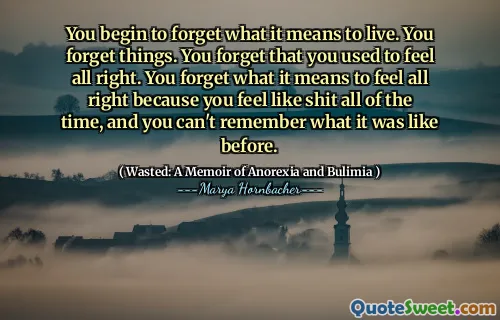
There was a time when I was unable to get out of bed because my body, its muscles eating themselves away, refused to sit up. There was a time when the lies rolled off my tongue with ease, when it was far more important to me to self-destruct than to admit I had a problem, let alone allow anyone to help.
This quote vividly captures the harrowing experience of living with an eating disorder and the complex interplay between physical suffering and emotional denial. It begins with an intense depiction of physical deterioration—muscles consuming themselves—that underscores the degree of body dysmorphia and self-neglect often associated with severe anorexia or similar conditions. The inability to get out of bed isn't merely physical fatigue but a manifestation of deeper psychological struggles, including feelings of helplessness and despair. The subsequent reflection on lying effortlessly about one's true state highlights a common tendency among those struggling with mental health issues to mask their pain. This act of deception serves as a shield, protecting individuals from confronting the reality of their suffering or seeking help, often out of fear, shame, or an overwhelming sense of hopelessness. The phrase 'far more important to me to self-destruct' emphasizes that the act of maintaining this facade becomes a form of control—even if that control is destructive. It reminds us how mental illness can distort priorities and perceptions, making self-harm or denial seem like the only options for managing inner turmoil. Recognizing such depth of suffering is crucial for fostering empathy and understanding. It underscores the importance of compassionate intervention and highlights the profound obstacles faced by those who find it easier to lie than to confront their own vulnerability. This quote resonates deeply, illustrating the silent battles fought within and reminding us that healing begins with acknowledgment and compassion.







